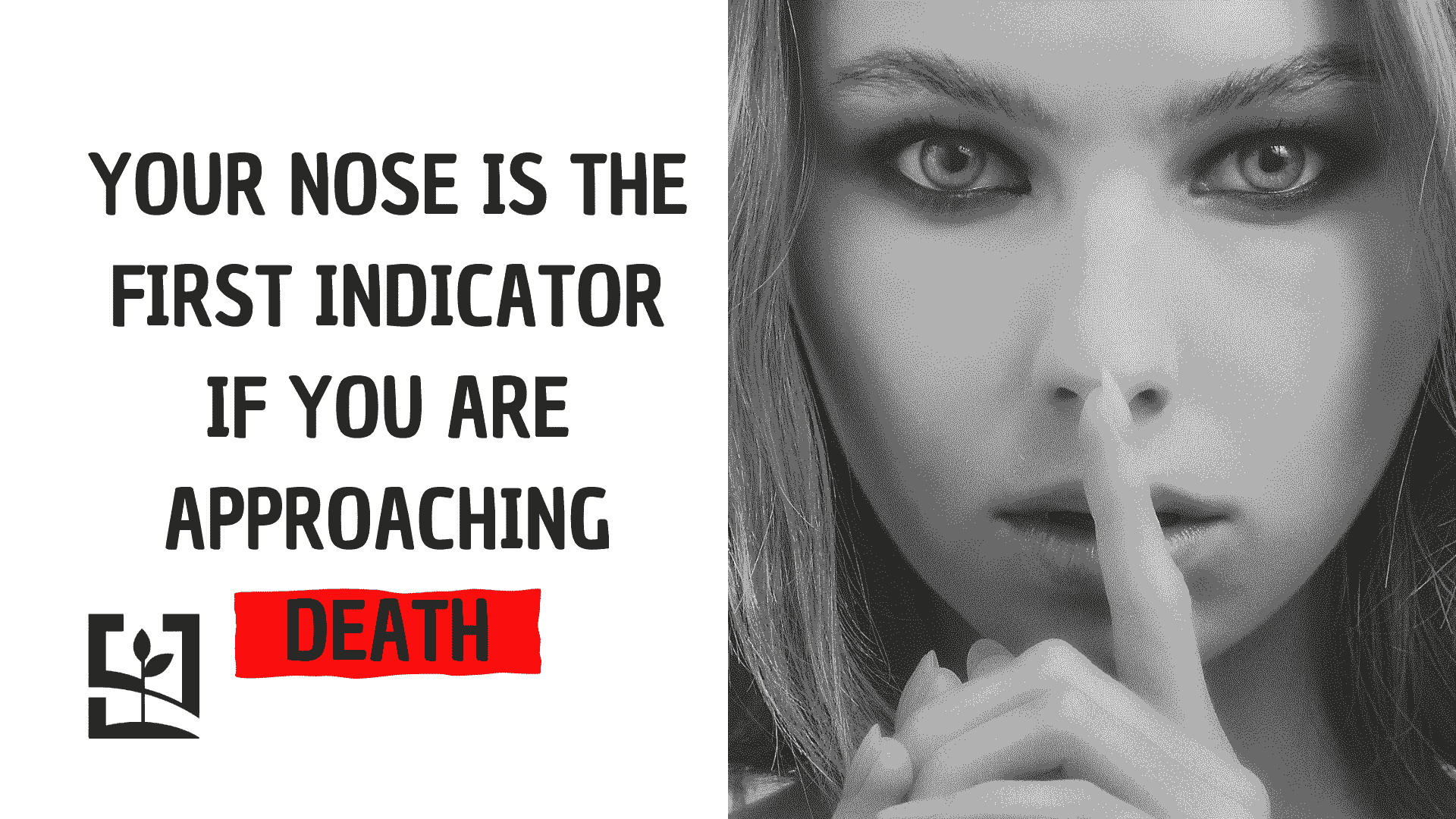
The intricacies of the human body are a source of interest and complexity. The human body is a magnificent natural wonder consisting of trillions of cells working together to produce tissues, organs and advanced systems. Scientists meticulously uncover mysteries that span from ancient civilizations to the present day, leading to continued discoveries that advance our understanding.
Questions about life, death and what happens after death have occupied the human mind throughout history. The human body’s journey from birth to death is a complex and deeply personal experience that has been studied and pondered by scientists, philosophers, and humans alike.
In rare cases, others may notice changes in a person’s behavior or appearance that cause them to fear that death is imminent. This phenomenon, sometimes known as the “smell of death” or “smell of death,” has attracted the attention of both medical professionals and the public. Some people at the end of their lives may experience changes in body odor, paleness of the skin, or even a distinct sense of smell. Although this has been observed anecdotally, recent scientific studies are beginning to shed light on the issue.
Recent scientific research suggests that there is some truth to the idea that certain metabolic and chemical changes occurring in the body as death approaches can potentially contribute to visible changes in smell. Changes in bacterial populations on the skin or in physiological fluids can result from processes such as the degradation of certain chemicals, the emission of certain volatile molecules, or changes in bacterial communities. However, it is vital to emphasize that this area of study is still in its early stages and more research is needed to properly understand the relationship between odor and impending mortality.
It is also worth noting that the approach of death through smell can be influenced by various elements, including psychological and emotional cues. These observations may be influenced by grief, intuition, and increased sensitivity during times of emotional distress.
As with any scientific topic, it is crucial to approach the subject with an open mind while awaiting conclusive evidence from additional research. The mysteries of life and death, as well as the complexity of the human body, continue to intrigue us and drive scientific research, reminding us that there is always more to learn and comprehend about the world around us.
The Mysterious Sixth Sense: Predicting Death Beyond Medical Understanding
In the complex field of human existence, a mysterious phenomenon has emerged that transcends the boundaries of medical knowledge and goes deep into human intuition. According to medical research, a striking pattern emerges: Patients facing their own death appear to have an incredible ability to predict the imminence of death even before it is reflected in medical indicators. This fascinating event reveals a space where intuition and the body’s silent signals collide, providing insight into the mysteries of the end of life.
Hospital corridors echo with startling testimonies from patients who, when asked about their health, respond with disturbing precision that they are running out of time. Surprisingly, their claims often precede any medical diagnosis or prognosis. In many cases, patients appear to have insight that conflicts with standard medical assessments. While experts examine the criteria and signs for any signs of change, some patients express a strong belief that their journey is over.
Moreover, these new insights often correspond to intriguing changes in patients’ conditions. Improvements in vital signs and measurements reflect medical continuation of life, perhaps even progress. Surprisingly, individuals themselves also have a strong sense of impending doom. This troubling mismatch between medical observations and patients’ advance warnings further complicates our understanding of life’s transition.
This phenomenon extends even further and embraces people with a so-called “sixth sense.” People with this strange ability often display a heightened awareness of their impending departure. They detect an invisible line, a threshold that only those on the verge of a new adventure can cross. Surprisingly, many of these people behave counterintuitively: they say goodbye to loved ones, tie up loose ends, and speak their final thoughts before the curtain closes.
The mystery grows as we explore the unexplored areas of this sixth sense. How can one recognize the small adjustments that signal the transition from life to the beyond? How does the mind reach a field of perception that medical science cannot grasp? So what drives some to say a heartfelt farewell while others leave quietly?
This phenomenon includes a space where the concrete and the abstract mix, where science meets mysticism and the intuitive dances with the unknown. Although human experience casts a shadow over the limits of existence, this event remains a tribute to the complex web of life’s mysteries. It invites us to reflect on the implicit layers of consciousness, to embrace the inexplicable, to appreciate the personal dance of the human soul and the inevitable horizon.
In a world where science is praised for its empirical prowess, the phenomenon of death prediction is a humbling reminder that humanity’s deepest truths are often found in areas beyond ordinary understanding. It asks us to pay attention to the whispers of our intuition, to embrace the wisdom that transcends the concrete, and to recognize that there are aspects of the complex dance of life and death that we cannot yet fully understand.

IMPLEMENTATION OF THE DEATH DETECTION SYSTEM
The University of Kent’s School of Psychology has carried out research into how people interpret death through smell.
It is the olfactory system that detects impending death. Experiments have shown that the olfactory system is essential for the survival of mammals. He is aware of potential threats. Likewise, emotions are felt through the nose.
Arno Wissmann, head of the investigation, examined the bodies after the death. According to him, before death, the body begins to deteriorate and decompose. This degradation produces various odors.
Putrescine, a by-product of the putrefaction process, gives off a singular odor.
The subconscious detects this smell and concludes that the end is near. Our subconscious is very important. Psychologists do not fully understand this level of intelligence. But it greatly affects the way an individual behaves and views the world.
RELATIONSHIPS BETWEEN EMOTIONS AND PERFUMES
Dr. Arnaud Weissmann conducted a behavioral experiment in which volunteers were exposed to different odors and their reactions were monitored; Putrescine was used in one group, while ammonia and water were used in the other group. The results showed that decaying participants reacted more quickly and more carefully. They were more protective of people who smelled of ammonia. Take time out of your busy schedule to meet with them and listen to what they have to say. Science shows that people can predict when they will die. So believe the facts and avoid doubting water.
No one could identify the source of the odor. But they were aware of it. Our subconscious sees the connection because our conscious mind cannot.
The study, carried out at the University of Kent’s School of Psychology, is part of a larger problem that many scientists are grappling with.
Some research suggests a link between emotions and smell.
Loss of smell
Another interesting study, led by Jayant Pinto of the University of Chicago, showed that smell can predict death within five years. This shows that your nose is the first sign that death is approaching. Loss of smell is an indicator of the body’s condition. Basal cells regenerate olfactory receptors in the olfactory nerve.
As we age, the proliferation of new cells slows down. This ultimately leads to the identification or identification of a particular odor. As a result, loss of smell indicates that the body is unable to heal itself. When the neurons of this nervous system are exposed to air, viruses can reach the brain directly. As a result, losing the ability to feel is a sign that something will die sooner or later. Therefore, it is reasonable to assume that your body is aware that death is approaching.

